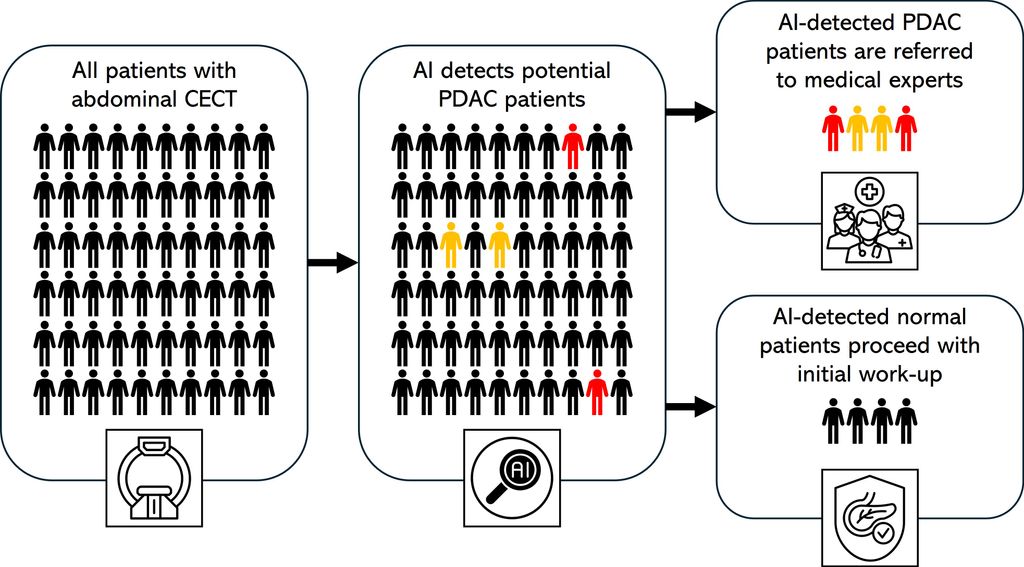
Clinical Problem
Pancreatic cancer is the deadliest cancer worldwide, claiming the lives of nearly all patients diagnosed in its later stages. Tragically, most patients receive their diagnosis only after the cancer has progressed too far for curative treatment. As a result, survival rates remain devastatingly low—often less than 5% at five years.
But what if we could detect pancreatic cancer earlier before symptoms appear? Early detection could lead to earlier intervention, more treatment options, and improved survival time. This PhD project aspires to tackle this critical challenge, using cutting-edge artificial intelligence (AI) to transform how pancreatic cancer is detected.
Solution
This research project will explore advanced AI (e.g., multimodal, generative, multi-agent) that can analyze routine CT scans to identify the earliest signs of pancreatic cancer, where the challenge is to be extremely careful not to misdiagnose non-pancreatic cancer patients (e.g., false positive levels lower than 1 in 1000 or 10.000). You will implement suitable AI to screen all CT scans that are already being taken for other medical reasons in an approach—known as opportunistic screening. You will be part of a team that will likely find pancreatic cancer patients at a much earlier, potentially curable phase.
The candidate will work with an extensive database of over 100,000 CT scans, as well as data from the PANORAMA challenge—the first international grand challenge for pancreatic cancer detection using CT scans—which provided 2,238 cases for training and over 1,000 cases for tuning and testing. Leveraging these resources, you will explore novel AI solutions tailored for opportunistic screening scenarios, pushing the boundaries of AI's capabilities in medical imaging.
Tasks
- Explore and validate AI for early detection of pancreatic cancer using and collecting large-scale imaging datasets.
- Develop and maintain an international benchmark for pancreatic opportunistic screening AI.
- Explore and validate AI tailored for opportunistic screening in real-world clinical settings at as low as possible false positive settings. Collaborate with an international group of radiologists, clinicians, and researchers to ensure that the solutions are clinically relevant and impactful.
Requirements
- Working knowledge of the latest AI developments and a mindset to keep up with the fast pace of AI developments.
- Master’s degree in computer science, mathematics, biomedical engineering, technical medicine, artificial intelligence, physics, or a related field.
- Strong technical background and programming skills, particularly in Python.
- Experience or interest in deep learning, medical imaging, and medical image analysis.
Why Join Us?
- Work with a world-class research team dedicated to improving outcomes for cancer patients.
- Access to state-of-the-art computational resources and groundbreaking datasets.
- Opportunities to publish in high-impact journals and present at leading conferences.
Practical Information
- Project duration: 4 years (PhD position).
- Location: Radboud University Medical Center, Nijmegen.
Application Process
Interested candidates are invited to submit:
- Cover Letter: Explain your interest in the position and highlight relevant experience.
- Curriculum Vitae (CV): Detail your academic background, research experience, and technical skills.
- References: Provide contact information for academic or professional references.
For more information, contact Natalia Alves or Megan Schuurmans.

